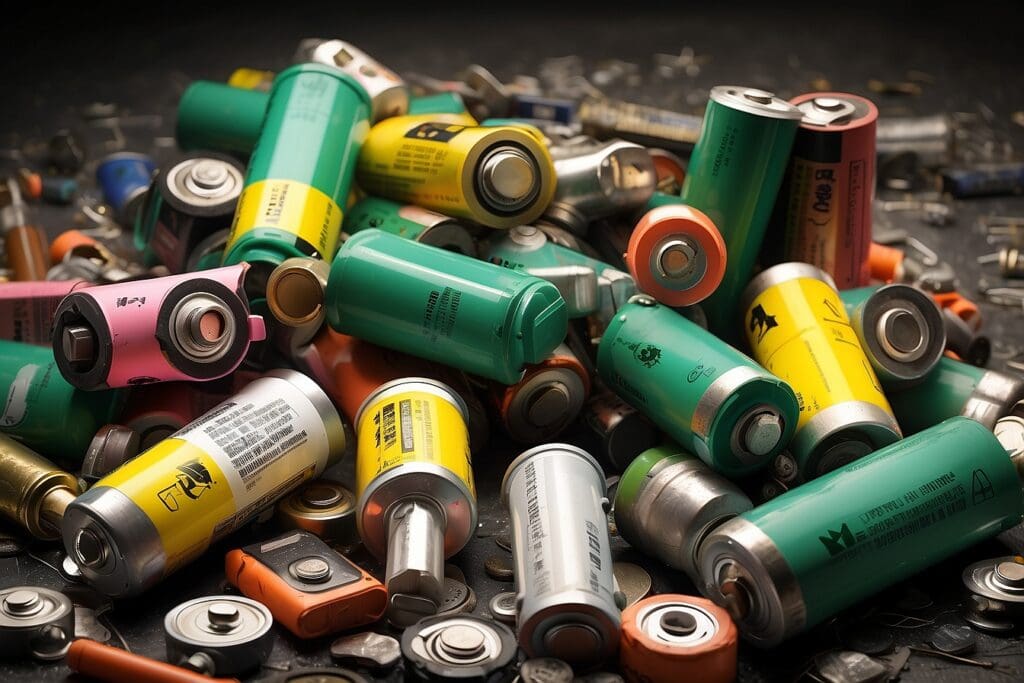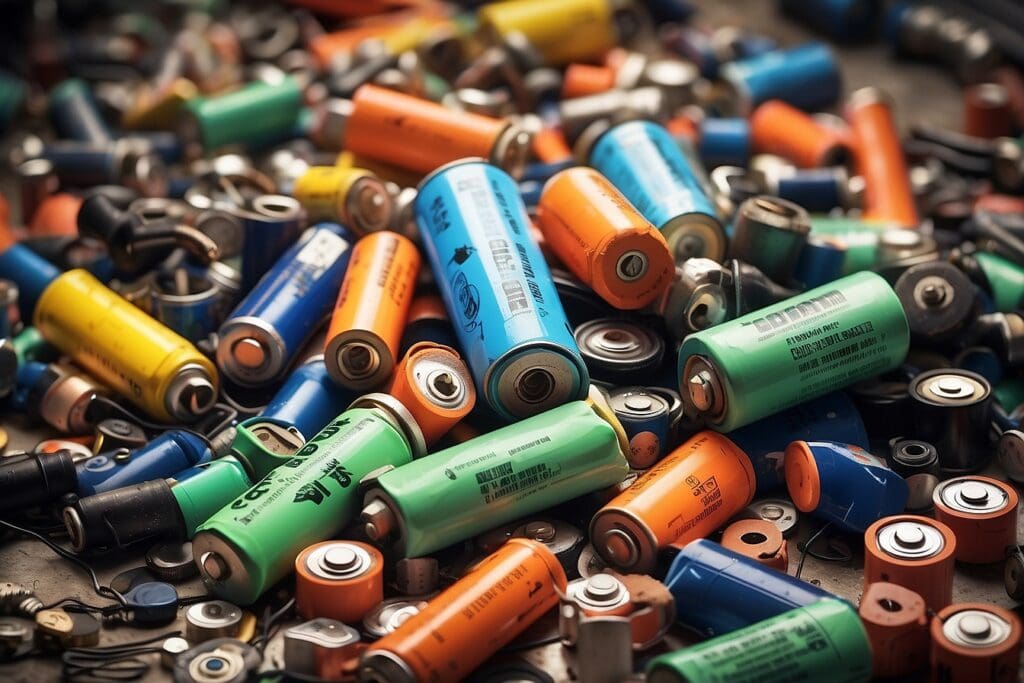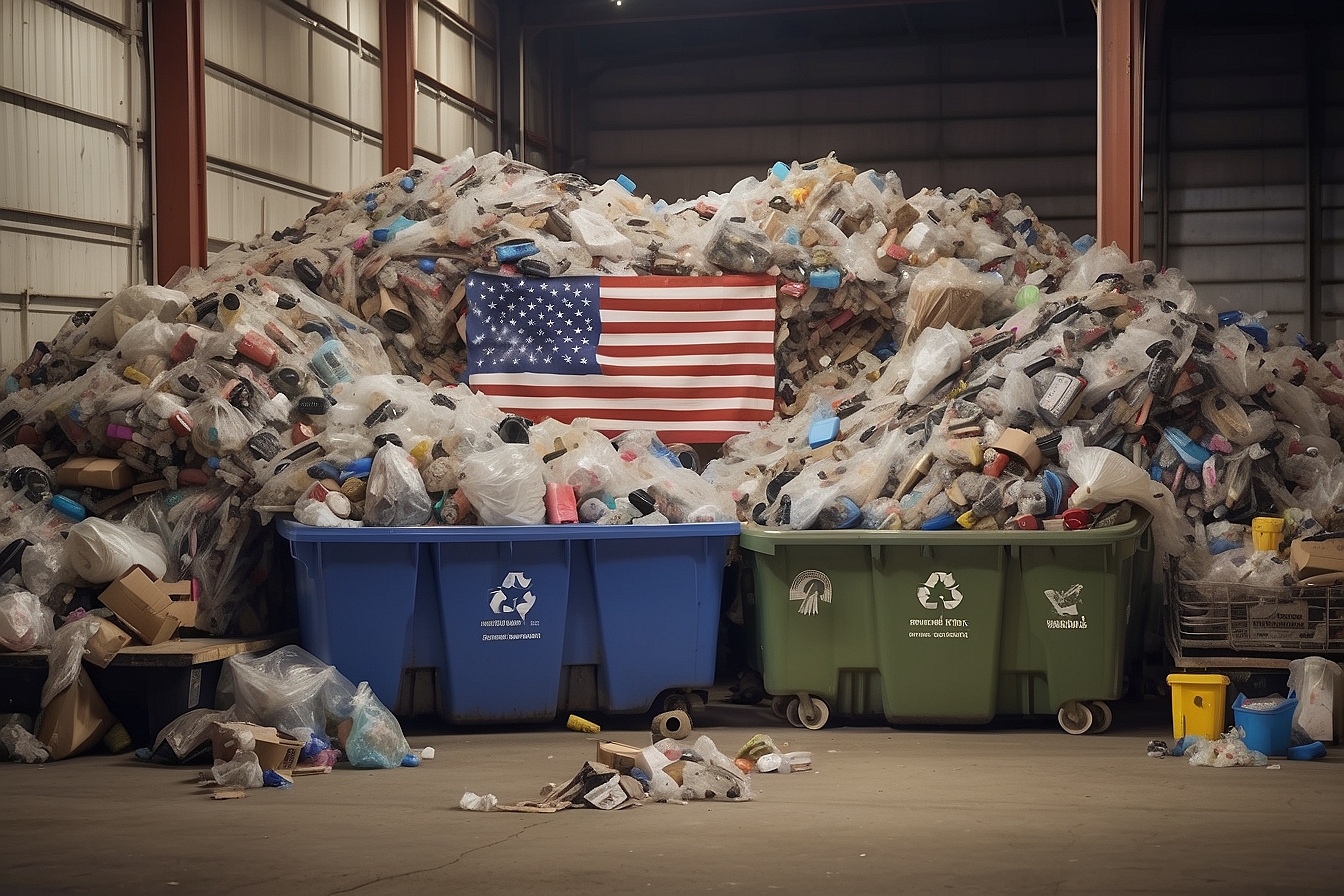Batteries are commonplace in most households. Americans purchase nearly 3 billion dry-cell batteries every year to power radios, toys, cellular phones, watches, laptop computers, and portable power tools.1 Most of these batteries are single use, or dry-cell, and the average person in the U.S. discards 8 of these per year. Many states consider the average battery to be “hazardous waste” because they contain toxic heavy metals such as nickel, mercury and lead. If they are not properly discarded, they can pollute lakes and streams, as their metal vaporizes when burned; they can leach toxins from solid waste landfills into our soil and groundwater; and they can expose our natural environment to lead and strong corrosive acids.2 Because of this hazardous threat, the Battery Act was passed in 1996 to phase out the use of mercury in rechargeable batteries, and to provide collection methods and recycling/proper disposal of all batteries. The State of California also requires recycling of single-use batteries. Because battery recycling is becoming increasingly mandatory, it is also becoming easier for the average consumer. Below you will find an introduction to common household batteries and how to dispose of them.

What is What?
All household batteries are considered either primary (single-use) batteries or secondary (rechargeable) batteries. Each year, Americans throw out almost 180,000 tons of batteries. About 14,000 of those tons are rechargeable batteries; the rest are single-use.3 By replacing single-use batteries with rechargeables, you can save money and reduce the amount of batteries going to the landfill. The batteries most often used in households include:
- Alkaline: Single-Use (also available as rechargeable). Most often found in stereos, radios, and appliances.
- Carbon-zinc: Single-Use. Most often found in flashlights and toys.
- Lithium: Single-Use. Most often found in cameras, calculators, watches, and computers.
- Nickel-cadmium (NiCd): Rechargeable. Most often used in low- to moderate-discharge devices such as scanners, portable radios, cordless phones and power tools.
- Nickel metal hydride (NiMH): Rechargeable. Most often used in high-discharge devices like portable power tools, digital cameras, cell phones and laptops.
- Button cell (lithium manganese): Single-Use. Most often found in watches, pacemakers, handheld video games, electric toothbrushes.
- Lead-based (automotive and non-automotive). Rechargeable. They are the oldest form of rechargeable batteries and used in automobiles. Non-automotive lead-based batteries are most often used to power industrial equipment, emergency lighting, and alarm systems.
Battery Recycling
Although every type of battery has specific instructions for recycling, it is recommended to recycle every single one! Recycling batteries or disposing of them properly will reduce unnecessary toxins in our environment, and in some states, it is illegal to throw them away. To make the recycling process easier, store all “dead” batteries together until you have the time to recycle them. Most battery recycling locations or programs will collect all of your batteries at the same time.
- Single-Use: Previously, it was recommended to dispose of these in the trash. However, they can now be recycled (as mandated in the State of California) in a variety of locations. Check out http://earth911.com/ to search for a location close to you. Often times, you can drop them off at Staples, Radio Shack or other electronics retailer.
- Rechargeables: Manufacturers and retailers are partnering to help increase the collection and recycling of used rechargeable batteries allowing rechargeable batteries to be recycled at no cost to the consumer. In addition to the Federal law (the Battery Act mentioned above), nine US states including California, Connecticut, Florida, Iowa, Maine, Maryland, Minnesota, New Jersey and Vermont, currently require the industry to develop and implement a state-approved rechargeable battery collection program as a requirement of selling rechargeable batteries in the state. This is overseen in many states by The Rechargeable Battery Recycling Corporation (RBRC)—a non-profit, public service organization dedicated to rechargeable battery recycling. The RBRC Call2Recycle program is supported by many national retailers, including (in the U.S.): ALLTEL, AT&T, Best Buy, Black & Decker, Circuit City, DeWalt, The Home Depot, Lowe’s, Milwaukee Electric Tool, Office Depot, Porter-Cable Service Centers, RadioShack, Remington Product Company, Sears/Orchard Supply Hardware, Staples, Target, US Cellular, and Verizon Wireless. If you do not have one of these retailers close to you, search for another location at www.call2recycle.org.
- Recycling all batteries from home: If you do not have a battery recycling location close to you, if you happen to use a large number of batteries over the year, or if you would just rather gather them up and send them in, you can now order a “battery box” to take care of it for you! By paying a fee for the service, you can pack up all of your batteries, send them in, and your batteries will be disposed of properly. Battery Solutions (batteryrecycling.com/) offers iRecycle Kits that are pre-paid, all-inclusive recycling kits. Each iRecycle Kit purchase includes: a collection container, EPA-approved recycling of all materials, shipping charges, recycling instructions, and a Certificate of Recycling. Or the Big Green Box (www.biggreenbox.com) is an international program that offers to companies, consumers, municipalities and other generators a low cost and easy way to provide electronics and battery recycling for themselves as well as their customers. The Big Green Box includes a United Nations approved transportation container, pre-paid shipping to our recycling facility and all battery recycling fees.





